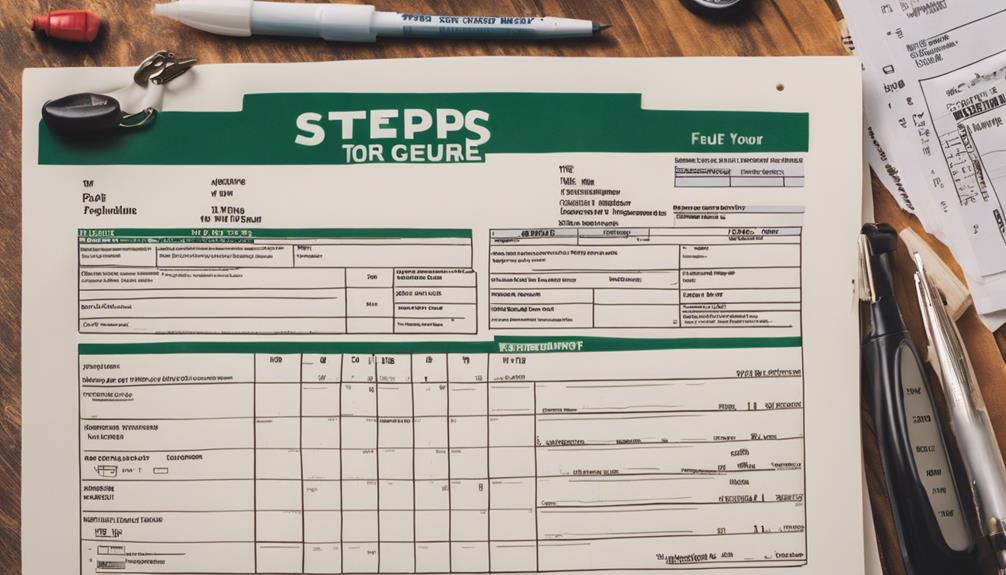When you're navigating the complexities of the Virginia Fuels Tax – Fuel Alcohol Provider Bond, it's essential to understand the implications for your business. This bond not only secures compliance with state regulations but also safeguards your credibility in a competitive market. To successfully obtain it, you'll need to meet specific requirements, including financial disclosures and a credit review. But what happens if you fail to secure this bond? The consequences could be more significant than you think.
Overview of Fuel Alcohol Provider Bond

When it comes to operating as a fuel alcohol provider, you'll need to secure a fuel alcohol provider bond. This bond acts as a financial guarantee that you'll comply with state regulations concerning the distribution and sale of fuel alcohol.
It's essential to understand that this isn't just a formality; it protects consumers and the state from potential losses due to your non-compliance. Additionally, securing a bond ensures that you're aligned with state fuel tax requirements and contributes to a stable business environment in the fuel industry.
In essence, the fuel alcohol provider bond ensures that you'll pay all necessary taxes and fees associated with your operations. If you fail to meet these obligations, the bond can be used to cover any claims made against you.
This means that securing the bond isn't just a legal requirement—it's also a way to build trust with your clients and the community you serve.
Additionally, having this bond in place can enhance your credibility in the marketplace. Customers often prefer dealing with bonded providers, as it indicates a level of responsibility and professionalism.
Requirements for Obtaining the Bond
To obtain a fuel alcohol provider bond, you need to meet several specific requirements set by the state.
First, you must be registered as a fuel alcohol provider with the Virginia Department of Taxation. This registration ensures that you're recognized as a legitimate business entity capable of selling and distributing fuel alcohol.
Next, you'll need to provide financial information to demonstrate your ability to cover potential liabilities. This usually includes submitting your financial statements and any relevant tax documents.
Your credit history may also be reviewed, as a good credit score can improve your chances of securing the bond.
Additionally, the bond amount will depend on the volume of fuel alcohol you plan to sell, so be prepared to provide estimates of your sales and operations.
You might also need to submit an application through a surety company, which will evaluate your qualifications and determine the bond premium.
Importance of Compliance

Compliance with state regulations is crucial for fuel alcohol providers. When you adhere to these regulations, you not only protect your business from potential legal issues but also foster trust with your clients and stakeholders.
By staying compliant, you demonstrate your commitment to operating within the law, which can enhance your reputation in the industry. Ensuring compliance with licensing requirements, including maintaining your cigarette tax bonds, is essential for establishing your credibility in the market.
Understanding the specific requirements and regulations governing fuel alcohol is essential. You'll need to keep accurate records, report tax information timely, and maintain your fuel alcohol provider bond.
Failure to comply can lead to hefty fines, penalties, and even the suspension of your license to operate.
Moreover, compliance reassures your customers that you're a reliable and responsible provider. It positions you as a leader in your field, which can help you gain a competitive advantage.
Regularly reviewing and updating your compliance practices can also prepare you for any changes in legislation, minimizing disruption to your operations.
Impact on Fuel Businesses
The fuels tax bond can significantly influence fuel businesses, shaping their financial landscape and operational strategies. For you, obtaining this bond is more than just a regulatory requirement; it's a crucial aspect of your business model. It provides a safety net that assures compliance with state regulations, allowing you to operate without financial strain caused by potential tax liabilities.
Additionally, understanding the nuances of mileage tax bonds can further enhance your operational efficiency and compliance. When you have the bond in place, it enhances your credibility with suppliers and customers, as they see you're committed to following the law. This trust can lead to better business relationships and potentially more favorable terms with vendors.
On the flip side, if you fail to secure the bond, you risk losing out on essential contracts or facing penalties that could jeopardize your operations.
Moreover, the costs associated with obtaining the bond can affect your budgeting and cash flow. You'll need to consider these expenses in your overall financial planning.
Ultimately, understanding the impact of the fuels tax bond empowers you to make informed decisions that align with your business goals while ensuring compliance and operational efficiency.
Steps to Secure Your Bond

Securing your fuels tax bond involves a straightforward process that can help you navigate regulatory requirements with ease.
First, you'll need to gather the necessary documentation, such as your business license, financial statements, and tax identification numbers. This information is crucial for underwriting your bond application.
Next, reach out to a reputable surety bond provider. It's essential to compare quotes from different companies to find the best rates and terms suited to your needs.
Once you've selected a provider, you'll complete a bond application, which typically requires personal and business information.
After submitting your application, the surety will evaluate your credit history and financial stability. If approved, you'll receive a bond quote detailing the premium and any conditions. Review this carefully to ensure it aligns with your expectations.
Once you agree to the terms, you'll pay the premium, and the bond will be issued. Make sure to keep copies of all documents for your records.
Conclusion
In summary, securing the Virginia Fuels Tax – Fuel Alcohol Provider Bond is essential for your business's credibility and compliance with state regulations. By understanding the requirements and taking the necessary steps, you protect yourself and consumers from potential losses. This bond not only reinforces trust in your operations but also helps maintain a fair marketplace. Don't overlook the importance of this bond—it's a crucial investment in your business's future and reputation.


